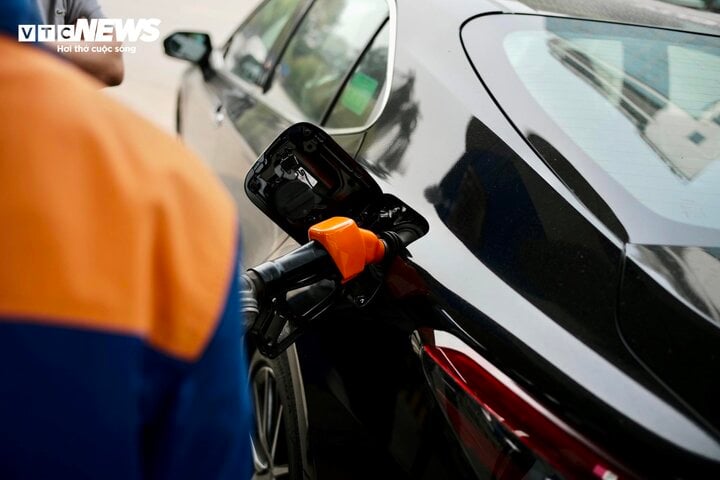Nguyễn Tùng Anh (28 years old), a technician working at Tùng Anh car garage (Long Bien, Hanoi), points out some common causes and solutions when an car has abnormal fuel consumption.
According to Tùng Anh, when encountering a situation where the car has abnormal fuel consumption, you should check the following 6 components:
Tires
Worn out tires or lower than standard tire pressure (flat tires) are one of the reasons why a car consumes more fuel after a period of use. Worn out tires or low tire pressure increases the contact area between the wheels and the road surface, causing the engine to consume more fuel due to the increased drag.
Handling: When detecting abnormal fuel consumption, the driver should check the condition of the tires, ensuring that the tire pressure is pumped according to the specified parameters usually provided by the manufacturer on the driver’s side door. If the tires are worn out, they should be rotated or replaced to ensure safety.
Spark Plugs (Bugi)
Spark plugs have the secondary function of igniting the fuel-air mixture in the combustion chamber. Over time, the quality of the spark plugs decreases due to carbon deposits or worn-out electrodes, causing delayed ignition and lower combustion efficiency. This leads to increased fuel injection and wastage.
Handling: If the spark plugs are found to be dirty or have worn-out electrodes, they should be thoroughly cleaned and tightly reinstalled.
Exhaust System
During use, the car’s exhaust pipes can be dented due to collision, leading to blockage or obstruction, causing an increase in exhaust gas pressure and increased fuel consumption.
Handling: Check the exhaust system, if the exhaust pipes are found to be blocked or clogged, the car should be taken to a maintenance facility for inspection and repair or replacement. You should also check the fuel injection system because if the fuel injectors are dirty, it will result in improper fuel injection and possible fuel wastage.
Coolant
Insufficient coolant or poor quality coolant also contributes to increased fuel consumption. Each car model has a coolant temperature sensor. When the coolant is insufficient or the sensor is faulty, it will report a lower temperature than the actual temperature. The amount of fuel injected into the engine will be more than normal, causing the car to consume more fuel.
Handling: Depending on each car model, users should regularly check and replace the coolant according to the manufacturer’s recommendations. The coolant reservoir is usually located in the engine compartment, under the hood. When checking visually, the coolant level in the overflow tank must be between the “Full” and “Low” marks, or “Min” and “Max” marks on some cars. If the coolant level is below the “Low” mark, it needs to be topped up.
Air Filter
The air filter’s task is to filter the air and prevent dirt from entering the combustion chamber. Over time, a clogged air filter will reduce the amount of air entering the combustion chamber, forcing the engine to inject more fuel to ensure power generation, resulting in increased fuel consumption.
Handling: Regularly clean the engine air filter system after the car has traveled 5,000 km, and replace the air filter after the car has traveled 20,000 km. For older cars, which are regularly used in dusty environments, the air filter should be cleaned after 3,000 – 4,000 km and replaced after 15,000 km.
Engine Oil
Not replacing the engine oil after a certain period of time will reduce the lubrication efficiency. Increased friction between larger components will cause the engine to heat up quickly, causing the car to consume more fuel than normal. Over time, it can also reduce the engine’s lifespan. In addition, replacing the engine oil with oil that does not meet the specified standards or viscosity also affects the engine’s performance.
Handling: Replace the engine oil according to the recommended schedule. If you do not know the regular oil change schedule, the driver should check the oil condition using a dipstick. In addition, consult the owner’s manual or ask technical experts from the car manufacturer to choose the appropriate oil for the engine.
According to VTC




































